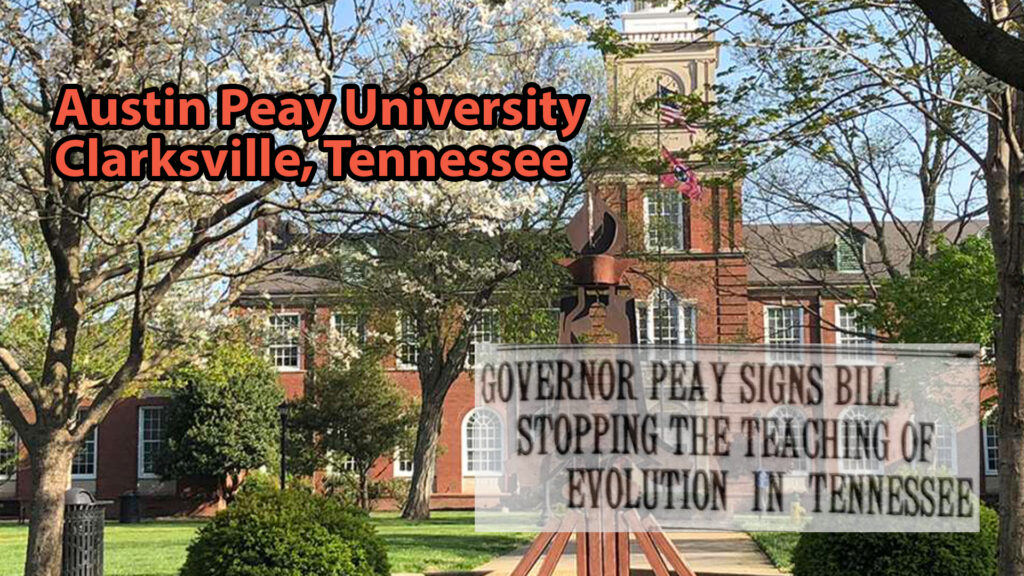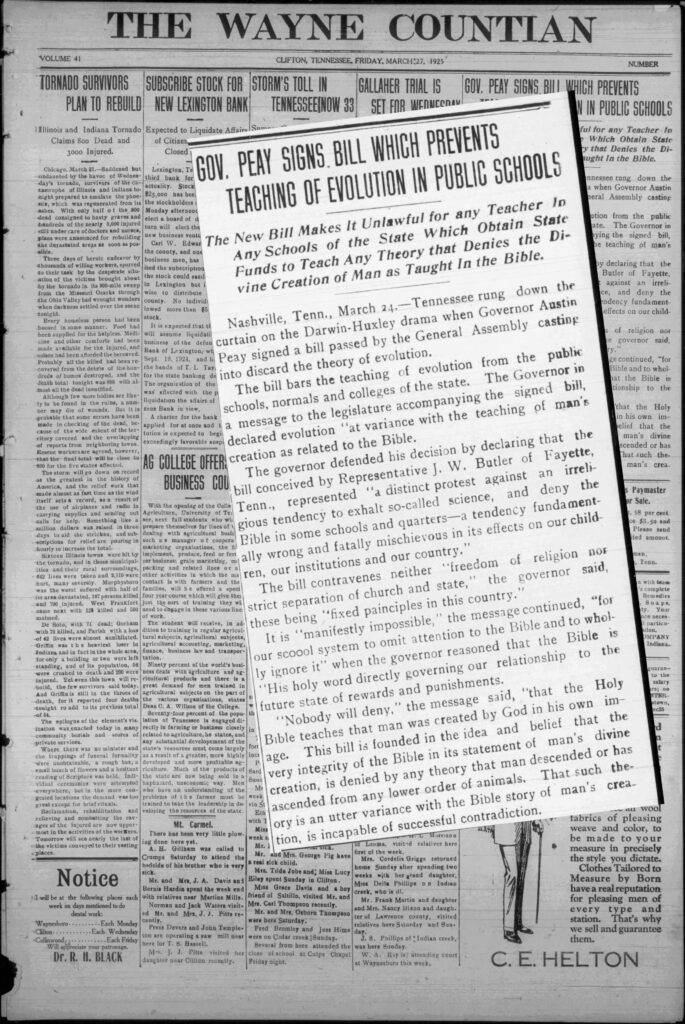
On March 21, 1925, Tennessee Governor Austin Peay signed into law the Butler Act, a bill that prohibited the teaching of evolution in public schools. He saw it as a routine measure—one that he believed would have little impact on the state’s education system. But within months, it would ignite a national controversy, culminating in the famous Scopes Trial. A century later, Peay’s legacy is still tied to that moment, though his impact on Tennessee went far beyond a single law.
Peay was not a fiery culture warrior, nor was he particularly concerned with the teaching of evolution. A pragmatic leader, he signed the Butler Act largely to maintain political harmony in a state where fundamentalist religious beliefs held strong sway. He viewed the bill as a minor concession to a legislature that overwhelmingly supported it, and he did not anticipate the fierce legal and cultural battle it would spark. In fact, Peay’s primary focus as governor was not on restricting scientific inquiry but on modernizing Tennessee’s infrastructure, expanding public education, and streamlining government operations.
Elected in 1922, Peay was a reformer at heart. He worked to improve Tennessee’s road system, increase funding for public schools, and overhaul the state’s finances. Under his leadership, Tennessee established a more efficient tax structure and made significant investments in education. Ironically, the same administration that signed a law limiting what could be taught in classrooms also made major strides in improving the state’s school system.

Despite his broader achievements, Peay’s name remains most closely associated with the Butler Act and the Scopes Trial. This historical footnote stands in contrast to the legacy of Austin Peay State University, which was named in his honor after his death in 1927. Founded as a normal school to train teachers, the university has since grown into a respected institution of higher learning. Over the years, it has expanded its academic programs, including strong science departments that teach the very theories once banned by the law Peay signed.
Austin Peay State University is also known for its athletic achievements, particularly in basketball. The Governors, as they are called, have made multiple NCAA tournament appearances, with memorable runs in the 1970s and 1980s. The university’s continued growth and success stand as a testament to how institutions can evolve beyond the legacies of the figures they are named after.
Peay’s governorship was defined by modernization and reform, yet his name remains tied to a moment that symbolized resistance to scientific progress. A century later, as we reflect on the Butler Act and its consequences, it’s worth remembering that history is rarely as simple as a single decision. The Tennessee governor who banned the teaching of evolution was also the leader who helped bring his state into the 20th century.